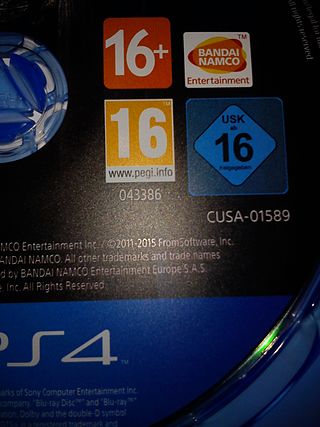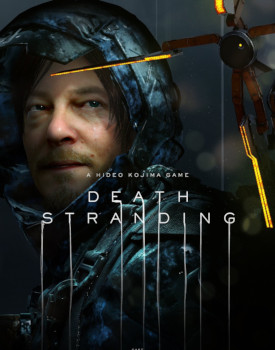
Papua is a province of Indonesia, comprising the northern coast of Western New Guinea together with island groups in Cenderawasih Bay to the west. It roughly follows the borders of Papuan customary region of Tabi Saireri, and is divided into eight regencies and one city (kota), the latter being the provincial capital of Jayapura.
A motion picture content rating system classifies films based on their suitability for audiences due to their treatment of issues such as sex, violence, or substance abuse, their use of profanity, or other matters typically deemed unsuitable for children or adolescents. Most countries have some form of rating system that issues determinations variously known as certifications, classifications, certificates, or ratings. Age recommendations, of either an advisory or restrictive capacity, are often applied in lieu of censorship; in some jurisdictions movie theaters may have a legal obligation to enforce restrictive ratings.

The Special Region of Yogyakarta is a province-level special region of Indonesia in southern Java. It is a semi-enclave that is surrounded by on the landward side by Central Java Province to the west, north, and east, but has a long coastline on the Indian Ocean to the south.

The Entertainment Software Rating Board (ESRB) is a self-regulatory organization that assigns age and content ratings to consumer video games in Canada, the United States, and Mexico. The ESRB was established in 1994 by the Entertainment Software Association, in response to criticism of controversial video games with excessively violent or sexual content, particularly after the 1993 congressional hearings following the releases of Mortal Kombat and Night Trap for home consoles and Doom for home computers. The industry, pressured with potential government oversight of video game ratings from these hearings, established both the IDSA and the ESRB within it to create a voluntary rating system based on the Motion Picture Association film rating system with additional considerations for video game interactivity.

PEGI, short for Pan-European Game Information, is a European video game content rating system established to help European consumers make informed decisions when buying video games or apps through the use of age recommendations and content descriptors. It was developed by the Interactive Software Federation of Europe (ISFE) and came into use in April 2003, replacing many national age rating systems with a single European system. The PEGI system is now used in 41 countries and is based on a code of conduct, a set of rules to which every publisher using the PEGI system is contractually committed. PEGI self-regulation is composed by five age categories and nine content descriptors that advise the suitability of a game for a certain age range based on the game's content. The age rating is not intended to indicate the difficulty of the game or the skill required to play it.

The following table indicates declared Indonesian government national holidays. Cultural variants also provide opportunity for holidays tied to local events. Beside official holidays, there are the so-called "libur bersama" or "cuti bersama", or joint leave(s) declared nationwide by the government. In total there are 16 public holidays every year.

"Hot Coffee" is the unofficial name for a minigame in the 2004 action-adventure video game Grand Theft Auto: San Andreas by Rockstar Games. While it was not playable in the official game release, the modding community discovered hidden code that, when enabled, allows protagonist Carl "CJ" Johnson to have animated sexual intercourse with his in-game girlfriend.

PT Surya Citra Televisi (SCTV) is an Indonesian free-to-air television broadcaster. It was launched on 24 August 1990 in Surabaya, East Java as Surabaya Central Televisi, broadcasting to the city and its surrounding area. At first, the programming was similar to that of RCTI, broadcasting foreign shows and some of RCTI news programs until they could produce their own. On 30 January 1993, SCTV obtained a national license and eventually moved its operations to Jakarta, changing its name to Surya Citra Televisi and marking the end of 3 year affiliation with RCTI. Its main offices are located in Central Jakarta, with studios in West Jakarta. It is owned by Surya Citra Media, a publicly listed subsidiary of the technology company Emtek.

TVRI is an Indonesian national public television network and one of Indonesia's two national Public Broadcasting Institutions, the other being the public radio network RRI. First publicly airing in 24 August 1962, on the opening day of, and established as part of the preparations for, the 1962 Asian Games, it is the oldest television network in the country. Its national headquarters is in Gelora, Central Jakarta.

The Movie and Television Review and Classification Board is a Filipino government agency under the Office of the President of the Philippines that is responsible for the classification and review of television programs, motion pictures and home videos.

An Indonesian passport is a travel document issued by the Government of Indonesia to Indonesian citizens residing in Indonesia or overseas. The main governing body with regards to the issuance of such passport(s), possession(s), withdrawal and related matters is the Directorate General of Immigration under the Ministry of Law and Human Rights. Indonesia does not recognize multiple citizenship for its citizens and such citizens will automatically lose their Indonesian citizenship if another citizenship is acquired voluntarily. Special exceptions allow newly born citizens to hold dual nationalities until his/her eighteenth birthday after which a choice of either nationalities should be decided. The latest Indonesian passport has different national birds and sceneries on each page.

A video game content rating system is a system used for the classification of video games based on suitability for target audiences. Most of these systems are associated with and/or sponsored by a government, and are sometimes part of the local motion picture rating system. The utility of such ratings has been called into question by studies that publish findings such as 90% of teenagers claim that their parents "never" check the ratings before allowing them to rent or buy video games, and as such, calls have been made to "fix" the existing rating systems. Video game content rating systems can be used as the basis for laws that cover the sales of video games to minors, such as in Australia. Rating checking and approval is part of the game localization when they are being prepared for their distribution in other countries or locales. These rating systems have also been used to voluntarily restrict sales of certain video games by stores, such as the German retailer Galeria Kaufhof's removal of all video games rated 18+ by the USK following the Winnenden school shooting.
In communication, media are the outlets or tools used to store and deliver semantic information or contained subject matter, described as content. The term generally refers to components of the mass media communications industry, such as print media (publishing), news media, photography, cinema, broadcasting, digital media, and advertising. Each of these different channels requires a specific, thus media-adequate approach, to a successful transmission of content.

The Ministry of Communication and Digital Affairs is an Indonesian government ministry that is responsible for communications, information affairs and internet censorship. The ministry reports to the president and is currently led by Meutya Hafid, the Minister of Communication and Digital Affairs.

Discord is an instant messaging and VoIP social platform which allows communication through voice calls, video calls, text messaging, and media. Communication can be private or take place in virtual communities called "servers". A server is a collection of persistent chat rooms and voice channels which can be accessed via invite links. Discord runs on Windows, macOS, Android, iOS, iPadOS, Linux, and in web browsers. As of 2024, the service has about 150 million monthly active users and 19 million weekly active servers. It is primarily used by gamers, although the share of users interested in other topics is growing. As of March 2024, Discord was the 30th most visited website in the world with 22.98% of its traffic coming from the United States. In March 2022, Discord employed 600 people globally.

Death Stranding is a 2019 action game developed by Kojima Productions and originally published by Sony Interactive Entertainment. It is the first game from director Hideo Kojima and Kojima Productions after their split from Konami in 2015. It was first released for PlayStation 4 in November 2019, followed by a Windows port in July 2020. A director's cut was released for PlayStation 5 in September 2021, followed by releases for Windows in March 2022, iOS, iPadOS and macOS in January 2024, and Amazon Luna and Xbox Series X/S in November 2024. Sony published the game on their consoles, while 505 Games published all other versions under license from Kojima Productions.

Tenor, Inc. is an online GIF search engine and database owned by Google. Its main product is the GIF Keyboard, which is available on Android, iOS, and macOS.
Video gaming in Indonesia is a growing sector, holding the 16th largest market in the world and about half of the Southeast Asian market in 2017. Over 40 million people in the country are active gamers, with mobile gaming being the dominant sector in terms of revenue. The development of video games in the country began with imported consoles and arcade centres, prior to developments of online gameplay in PC games and increasing prevalence of the internet cafés. Mobile games began gaining importance as smartphones were introduced.
TVRI World is an Indonesian television channel owned by public broadcaster TVRI, catered for domestic and international audiences. The English-language channel is currently on its trial broadcast, with its planned launching in 2024. The channel is domestically available in digital terrestrial, satellite, and the TVRI Klik streaming service.




















